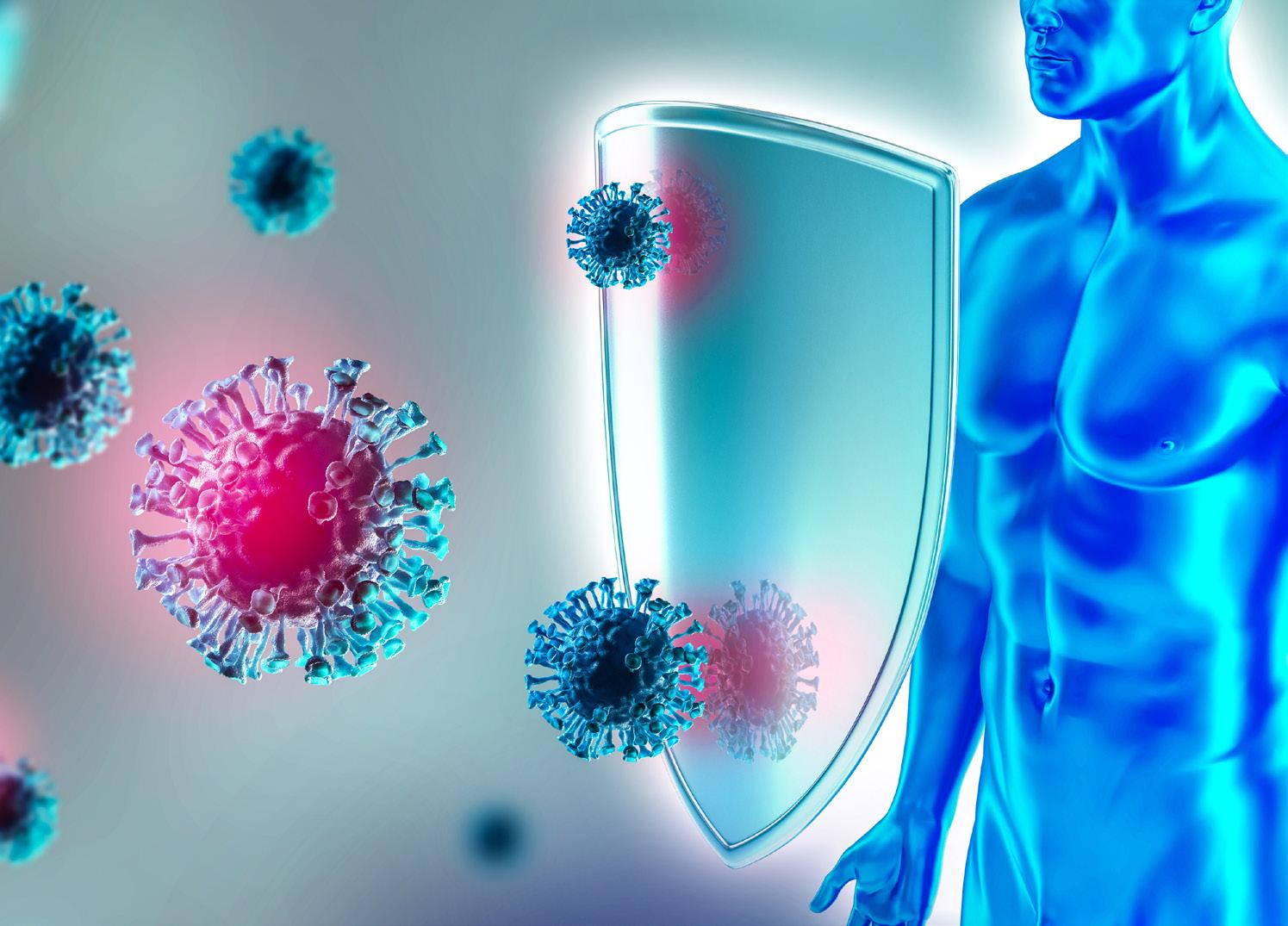
3 minute read
Spotlight on Covid-19 and immune support
In terms of marketing strategies, several nutrients have the backing of the European Food Safety Authority
(EFSA) when it comes to general immunity claims, meaning that they help ensure the immune system
works normally when consumed in sufficient quantities. 36 These include vitamins A, B6, B9, B12, C and E,
and the minerals zinc, copper, iron and selenium. For all of these nutrients, EFSA considers that a cause
and effect relationship has been established between dietary intake and their contribution to the normal
function of the immune system. 37 Other promising nutrients, including probiotics, have not been successful
in convincing EFSA of their efficacy for immune support. 38 Nevertheless, many studies have linked increased
gut microbial diversity with improved immune regulation, 39 and pre- and probiotic-containing products
continue to be a major part of the market for immune support. 40
For food and beverage manufacturers, one approach to immunity positioning is to take advantage of
immunity-related health claims by fortifying products with approved nutrients – including in combination
with other ingredients, such as herbs and probiotics. Danone reformulated its Actimel probiotic drinking
yoghurt, for instance, with vitamins B6 and D in some countries after these nutrients gained EFSA approval
for immune benefits. 41 Other popular product formats include soft drinks and teas, 42 as well as fortified
breakfast cereals.
Source: Mintel GNPD 43

The Covid-19 outbreak has prompted a surge in demand for foods and supplements associated with immune support. 44 Vitamin C supplements have been particularly sought after, with regional authorities in the Philippines distributing the vitamin to school children, 45 for example, and supermarket chains in Singapore and China have seen sales increase up to five-fold in February alongside sales of other products associated with immunity, such as Traditional Chinese Medicines and herbal remedies. 46
In addition, the Chinese government, in conjunction with dairy industry organisations, has underlined its advice that residents should consume the equivalent of 300 grams of liquid milk each day in the hope of improving immune health during the pandemic. 47 According to the guideline document, average per capita Chinese milk consumption is equivalent to just 24.7 grams per day, and many residents are at risk of nutrient deficiencies that could be addressed by higher milk intakes, including for protein, calcium, vitamin A, vitamin D, magnesium, potassium, iodine, and zinc. It also suggests consuming dairy products fermented by lactic acid or containing pre- and probiotics to improve gut health and cites research into various protein ingredients found in milk for their role in proper immune function.
Other ingredients reportedly seeing increased interest during the pandemic include beta-glucans, a component of dietary fibre found in grains like oats and barley as well as in algae, yeasts and fungi. 48
Although no quantity of any vitamin or food is able to fight off Covid-19 once a person has been exposed to the virus, good nutrition can help support the normal role of the immune system, meaning it has the tools it needs to respond appropriately. 49 People suffering from nutritional deficiencies are more likely to suffer from complications from any infection or illness, and poor nutrition is one factor among many that could contribute to an impaired immune response. 50
Food and supplement manufacturers must take extra care that their products do not make any unapproved implied health claims when it comes to immunity, particularly as regulators worldwide have cracked down on such claims. The US Food and Drug Administration 51 and European Food Safety Authority 52 are among those to have issued warnings to manufacturers making false claims in relation to the novel coronavirus. GOED, a trade organisation representing the global omega-3 industry, also has warned its members against making claims regarding immunity, whether in general, or specifically referring to Covid-19. 53

Euromonitor International has predicted that soft drinks with an immune support positioning are likely to see a longer-term boost as a result of the outbreak, alongside shifting consumer attitudes toward health and wellness. 54





